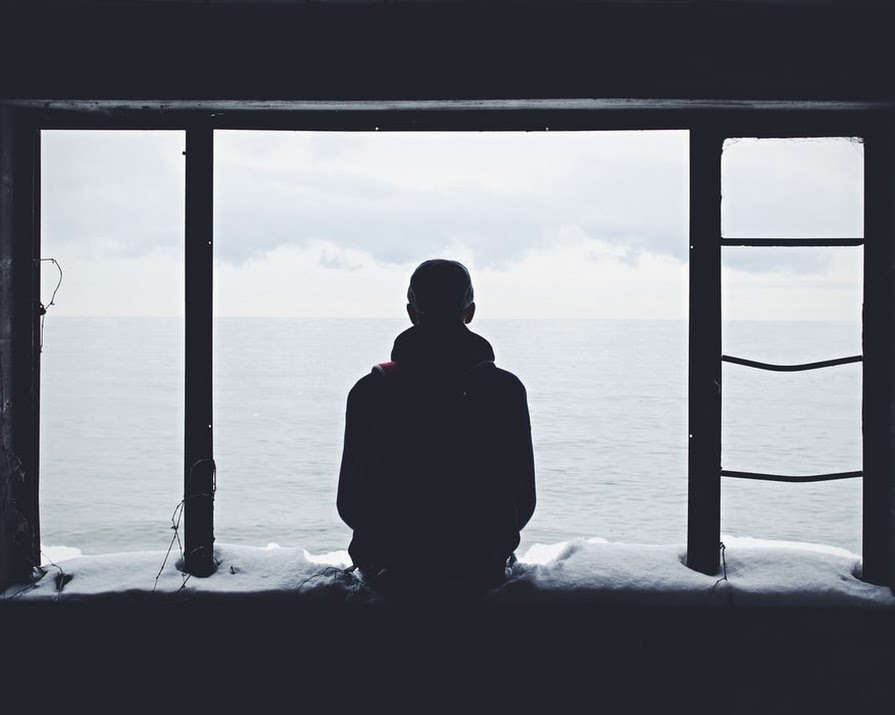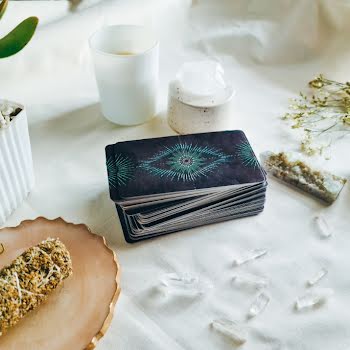
By Erin Lindsay
03rd Dec 2020
03rd Dec 2020
Been feeling like something isn’t right lately? Here’s how to spot the signs of depression in yourself and others, and how to help
It’s been a rough year for everyone, and while all of us will have experienced dips in our mood and wellbeing over the last 10 months, for others, the effects of Covid-19 have been a little deeper.
Depression is a more common condition than you may think – 1 in 10 of us will experience depression in our lifetime, which means that 450,000 people in Ireland are living with depression right now.
Many things can spark a depressive period in a person’s life, and factors like isolation, illness, changes to our schedule, and an influx of negative news on TV and social media – all of which we’ve experienced this year – are very common in contributing to feelings of depression.
A recent survey by the Central Statistics Office on the wellbeing of Irish people under Level 5 restrictions found that 11.5% of respondents felt downhearted or depressed all or most of the time.
That’s a jump of 6% compared to the figures from the first lockdown in April, where just 5% expressed such feelings.
Additionally, more than one in three respondents rated their overall life satisfaction as ‘low’ for the month of November, compared with 29.6% in April and 8.7% in 2018.
Sometimes, especially in such an unprecedented year, it can be difficult to recognise whether you or someone you love has depression – what are the signs, what should we be paying attention to, and how do we know when to step in and help?
First off, what is depression?
It’s important to understand that depression is not just feeling unhappy for a few days. Most people go through periods of feeling down, but their mood will naturally lift again after a short time.
People with depression feel very low for longer periods – weeks or months at a time, and sometimes longer. Depression is not a sign of weakness, or a lack of effort on the person’s part. It is not something they can just ‘snap out of’ and feel better straight away.
There are lots of different types of depression that can affect people at different times. Postpartum depression, for example, occurs following pregnancy and during the early stages of parenthood. Seasonal Affective Disorder (SAD) is depression related to feeling more depressed during the winter months than spring and summer.
With the right treatment and support, people with clinical depression can make a full recovery.
How do I know if I have depression?
Depression can affect people in different ways, so it’s important to pay attention to your body and your mood, and notice any significant changes.
Depression can affect you both physically and psychologically. Generally, if you experience symptoms of depression for longer than a few weeks, and they are serious enough to interfere with your work, social life, and other responsibilities, you should address them and reach out for support.
Here are some psychological symptoms you may notice:
- You feel sad and have a low mood, and many of the things that normally bring you joy don’t seem to anymore
- You have a hopeless outlook on things – you feel that your situation won’t ever improve, and you are pessimistic about the future
- You have feelings of self-hate and low self-esteem – you may feel worthless or guilty about how you’re feeling
- You may be more irritable than usual
- You have little to no motivation or interest in things, and find it difficult to get enjoyment out of life
- You may feel more anxious or worried than usual
- Thoughts of self-harm or suicide
Some physical symptoms may include:
- Fatigue and lack of energy – it takes a lot of energy to complete even small tasks, and you feel very tired and unmotivated
- Disturbed sleep – you may oversleep, spending hours in bed, or may experience insomnia
- Changes in diet or weight – you may lose weight, or gain it, and change your eating habits
- Aches and pains – some people with depression feel physical pain in their muscles and joints
- Low sex drive
What are the signs of depression in others?
The symptoms of depression in others can be more difficult to spot – they may not want to talk about how they are feeling and may not tell you that they are struggling with feelings of depression.
If you notice any of the above symptoms in a loved one, they may be experiencing feelings of depression. Have you noticed:
- They have lost interest in getting out of the house, or any of the activities that you used to enjoy together?
- They seem to always be tired?
- They have gained or lost a noticeable amount of weight, or their eating habits have changed?
- They seem irritable and lash out more, or are weepy and very low?
- They show little joy in receiving visitors or phone calls?
Depression and suicide risk
Depression can be a risk factor for suicide. Sometimes, the pain and feeling of hopelessness that comes with depression can make a person feel as if the only way out is suicide. If you have noticed any of the below signs of suicidal thoughts in a loved one, it may be time to speak up:
- Talking about killing or harming themselves
- Saying things like “everyone would be better off without me” or expressing that they feel trapped in their situation
- Calling or visiting people when they previously had not been able to, or getting their affairs in order
- A sudden switch from very low and depressed mood to acting calm and happy
How to help
If you think you may have depression, the first step is to reach out to someone you trust and tell them how you’re feeling. Remember, depression or any other kind of mental health problem is nothing to be ashamed of – with the right kind of support, you can and will get back to feeling yourself again.
There are lots of support systems available – talk to your G.P, or contact a depression service such as Aware or, if you have been feeling suicidal, Pieta House.
Having a stable and active daily routine is another great way to handle feelings of depression. Here are things to keep in mind:
- Maintaining a healthy and balanced diet – try to have healthy readymade/ pre-prepared options in your house for when cooking feels overwhelming. Try to keep to three meals a day, and drink plenty of water.
- Maintain an active exercise routine – when a full-blown workout doesn’t feel realistic, getting out of the house for a walk around your road, or even just out the back garden for some fresh air, are great options.
- Fill your day with activities that bring you joy – whether it’s a hobby or spending time with or talking to loved ones.
- Care for yourself – take the time to nurture yourself, whether that’s with a long bath, or slowly completing your skin care routine, or wearing your favourite clothes.
If you think someone close to you may have depression, it’s important to understand that you cannot force them to talk about it – they may not feel ready to discuss how they’re feeling. The best thing that you can do is to make sure they know that you are there for them and you support them. Be available for them to talk, and really listen to how they feel.
If you’re unsure of what to say, here are some wordings to help:
- I’ve noticed that you’re a bit down lately. Do you want to talk about it?
- What can I do to help?
- I’m here whenever you want to talk.
- I may not understand exactly how you feel, but I am here to listen.
- That sounds like it would be hard. How are you coping?
- You’re important to me/ I love you/ you matter.























